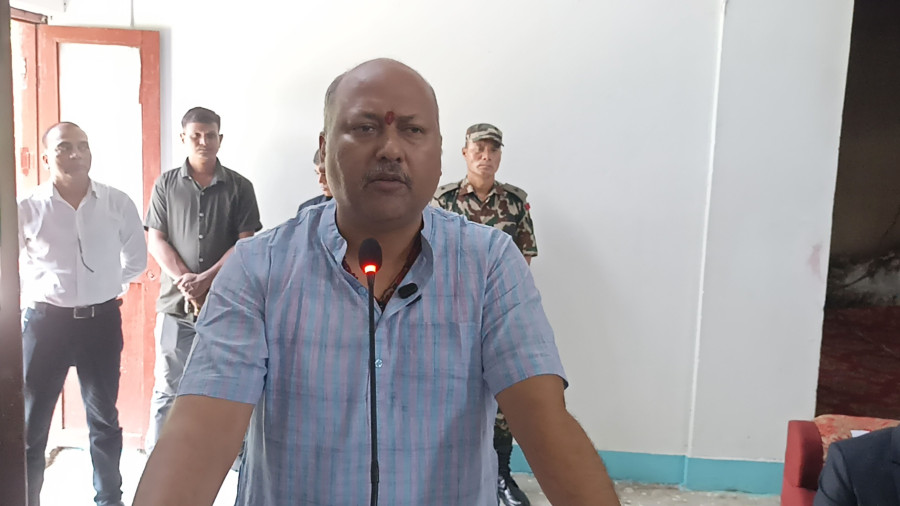Politics
Madhesh chief minister, who resigned during Gen Z protests, backtracks
Satish Kumar Singh, who is from the Janamat Party, cites talks with coalition and opposition leaders and the need to safeguard federalism.
Ajit Tiwari
Just days after saying he would resign amid the peak of Gen Z protests, Madhesh Chief Minister Satish Kumar Singh backtracked on his announcement, arguing that talks with coalition and opposition leaders and concerns over the province’s federal setup influenced his decision.
The reversal came as his own Janamat Party withdrew support and recalled ministers, leaving Singh caught between party pressure and the need to keep the provincial government stable.
When the protests reached their height last week, then-Janamat Party spokesperson Sharad Singh Yadav declared that the chief minister would resign and the party would pull support from the KP Sharma Oli-led government at the centre.
Singh, at the time, told the Post that he was resigning on the advice of party chairman CK Raut. “The people elected us to this position; no one is above the public. The damage caused during the Gen Z protests has been distressing. The public is angry,” he said.
He later posted on Facebook that he was stepping down, stressing that citizens’ lives take precedence and that he remained accountable for their rights and future.
At the time, Provincial Head Sumitra Subedi Bhandari was in Kathmandu, preventing Singh from submitting a written resignation immediately. With protests disrupting the province, Singh stayed outside Janakpur for several days and returned on Monday to formally submit his resignation.
“Only the Nepali Army was present at the provincial chief’s residence,” Singh’s press adviser Awadhesh Kumar Jha said. “The province chief informed the CM she would return in two to four days.”
The Janamat Party escalated the pressure. Parliamentary leader Mahesh Prasad Yadav sent a letter to the province chief on September 13, made public on Facebook, formally withdrawing support from the government and recalling ministers.
The move frustrated Singh. “I am ready to resign. But in the absence of the province head, to whom should I submit my resignation?” he said, repeatedly questioning why internal party decisions are instantly shared on social media.
During this period, Singh consulted allies from the CPN-UML, Nepali Congress, and Loktantrik Samajbadi Party, as well as opposition leaders from Janata Samajbadi Party, CPN (Maoist Centre), and CPN (Unified Socialist). These discussions led him to reconsider resigning.
The Janamat Party demanded clarification from Singh, giving him a 24-hour and then a three-day deadline. Singh remained silent on the matter.
With Singh not resigning, Janamat withdrew support from the government. The chief minister now intends to face a vote of confidence in the provincial assembly.
At a Constitution Day event in Janakpur on Friday, Singh said, like President Ramchandra Paudel, he would not resign ‘to protect federalism’. “Yes, I had announced my resignation. But after consulting coalition and opposition parties, we assessed that changing the chief minister now could put the federal system at risk, so I stepped back,” he argued.




 8.22°C Kathmandu
8.22°C Kathmandu















